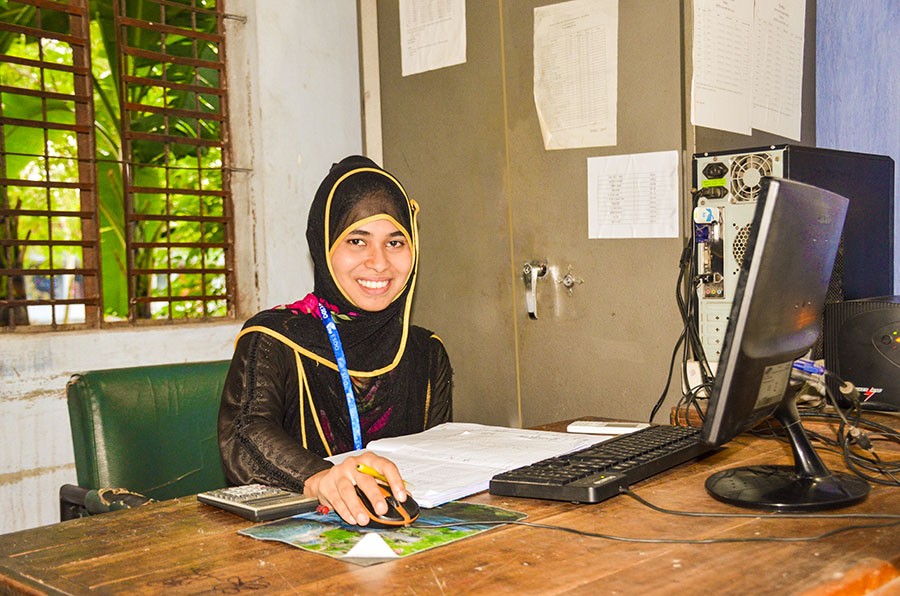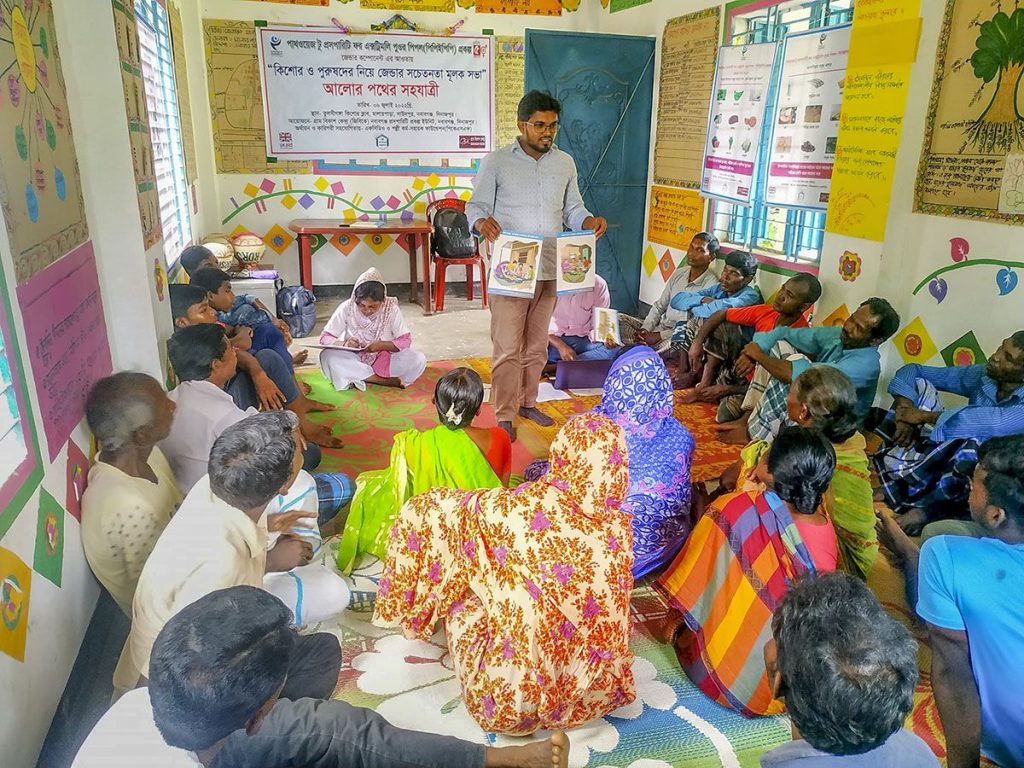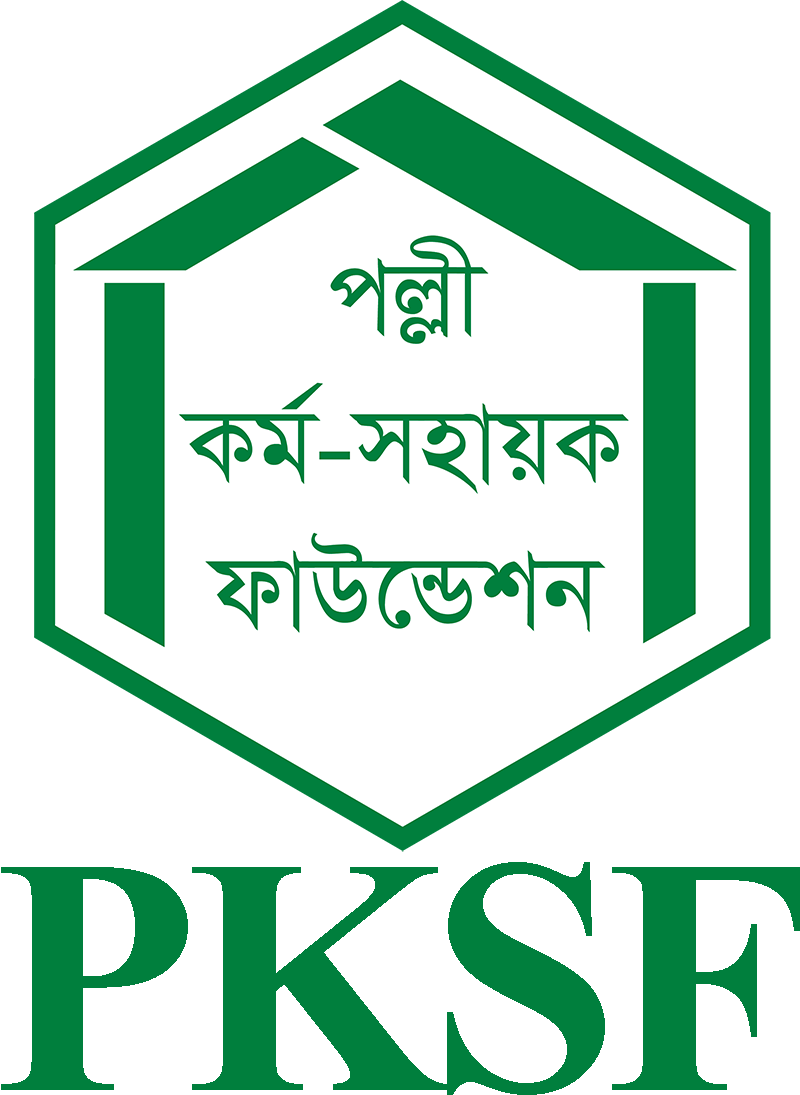
Women in Bangladesh in general struggle to establish their rights in family, in society, in workplaces and elsewhere. Despite having the necessary state-level facilitations, women, who are more than half the total population, still face discrimination, exclusion and injustice, and have negligible influence in decision-making processes.
However, women’s opportunities and public participation in Bangladesh have increased significantly in recent decades. For example, major progress has been made in closing the gender gap in school enrolments both at primary and secondary levels; girls currently outnumber boys’ enrolments.
Many women are now members of the local government bodies that have important responsibilities for rural and urban development. The rapid growth of the garment industry has provided a large number of formal sector jobs for women, who comprise more than 90% of its labor force. This has significantly contributed to the textile and readymade garment sector’s share in Bangladesh’s GDP growth to remain at more than 18% over the past decade (Hossain, 2021). However, there also are quite a few areas of women’s development where the country fare rather poorly. According to the Global Gender Gap Index 2021, Bangladesh ranks 65th in the world in closing the gender gap out of 156 countries. The situation is worse when it comes to women’s economic participation and opportunity (ranking 147th), educational attainment (ranking 121st), and health and survival (ranking 134th).

As a government-established institution, PKSF adheres to government policies and works as an extension of the government to promote, practice and implement government policies within the scope of its work. Soon after the adoption of the SDGs by the UN General Assembly, PKSF formulated a number of specific policies aligned with the SDGs and the relevant targets, ranging from poverty reduction, healthcare services and climate change adaptation to gender equality. On gender equality front, which is enshrined in SDG-5, PKSF has put in place a set of strict guidelines to not only promote, but also ensure women empowerment in all activities of PKSF. This is done at three levels: a) PKSF level, b) Downstream Partner Organization level, and c) Field level.
Safe and women-friendly work environment and prevention of discrimination against women at PKSF are governed by three separate, yet interlinked, policies, namely Human Resource Policy, Gender Policy, and Sexual Harassment Elimination Policy. Each policy has its specific purposes, but together, they ensure zero tolerance for any form of gender-based discrimination, abuse, and harassment, and safeguard women’s workplace rights.
PKSF is an equal opportunity institution that strives to ensure gender balance in its workforce and always encourages women to apply for jobs. At the moment, more than 10% of its core staff members are women. Of them, 6% are in the Assistant General Manager to Managing Director level, 14% in the Assistant Manager to Manager level, and 26% in the Junior Officer to Officer level. Apart from the core staff, women constitute more than 10% of all the project staff.
In line with the High Court directives issued in 2009, PKSF has formed a dedicated team for the management and resolution of sexual harassment complaints. The five-member committee is headed by an Additional Managing Director of PKSF and is comprised of three women, two of whom come from rights organizations Ain o Salish Kendra and Bangladesh Legal Aid Services Trust.
PKSF ensures maternity leave for six months and paternity leave for two weeks as mandated by the government rules.
To ensure the wellbeing of the infants and young children and retain the female officials, PKSF operates a full-fledged Daycare Center on its office premises. Run by a professional organization, the center has all the necessary features, including arrangements for baby food, a dedicated doctor and a play zone for the children of PKSF employees.
All PKSF staff members are required to undertake field visits to monitor field activities. However, to ensure maximum safety of female employees, PKSF has mandatory provisions for safe accommodation and office car for them during a field visit. Female employees are also discouraged to undertake field visits in remote areas where they may face higher risks.
PKSF selects its Partner Organizations (POs) based on a stringent set of criteria, including their compliance to all PKSF policies and guidelines. In line with the PKSF policies, the POs also offer equal opportunities for women in job placement and ensure women-friendly workplace with zero tolerance for abuse, discrimination and sexual harassment. They also have provisions for maternity leave and paternity leave. According to the latest data, 29% of the overall PO staff members are women, with 38% of them holding executive positions.
PKSF integrates gender issue in each project at the design phase to make sure that women empowerment and women rights get high priority during program implementation. In addition, each project has a Gender Focal Person, usually a woman, who ensures that the project activities are aligned with the SDG-5, and offers guidance when adjustments are needed.
Through its various core programs and time-bound projects, PKSF supports more than 16 million households. More than 90% of these participants are women. This means PKSF provides a platform for millions of women and adolescent girls across the country to organize, create their own support network base and raise their voice. In all its activities, PKSF ensures that women empowerment and women rights get special focus. This is done by prioritizing women and women-led households in enterprise development, skills development training and job placement, value chain development, nutrition and healthcare services, educational assistance, social capital formation, housing, access to assets, climate change adaptation, special savings schemes, market linkages, etc. PKSF also organizes awareness campaigns against various social ills such as harassment of girls and women, dowry, violence against women, trafficking of women and children, child marriage and so on. More importantly, PKSF aims to bring women out of the unpaid and unappreciated household work and creates an enabling environment for them to be empowered and to prosper with equal rights and dignity.
